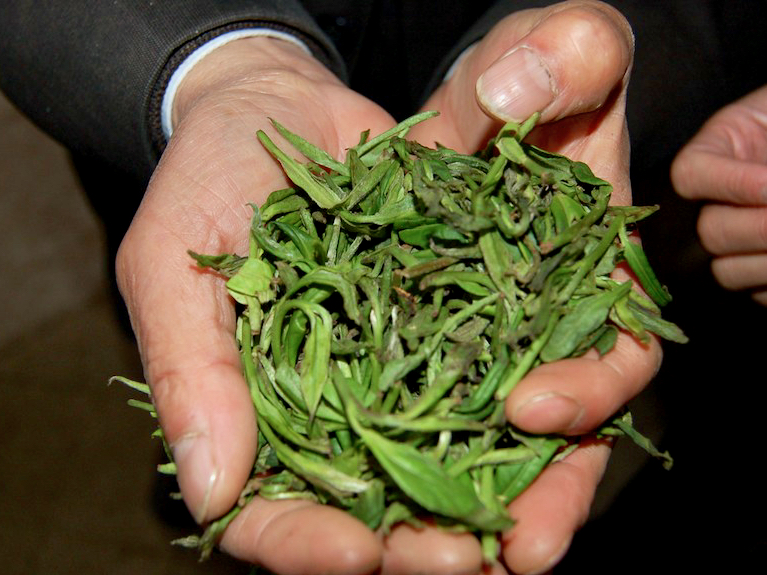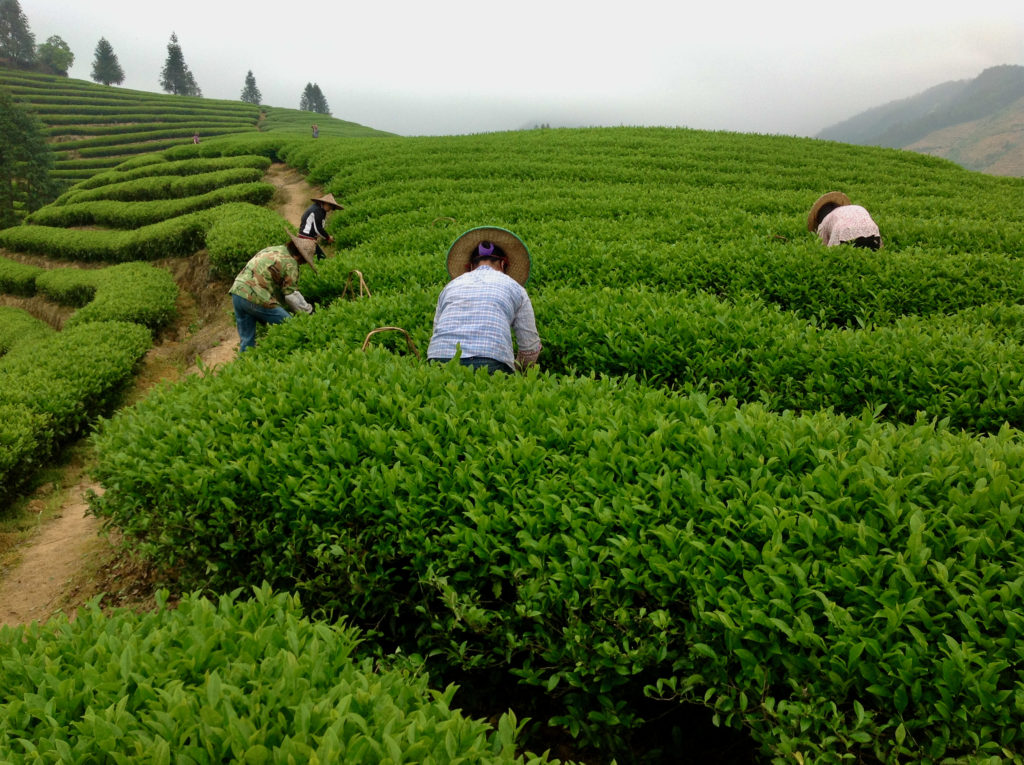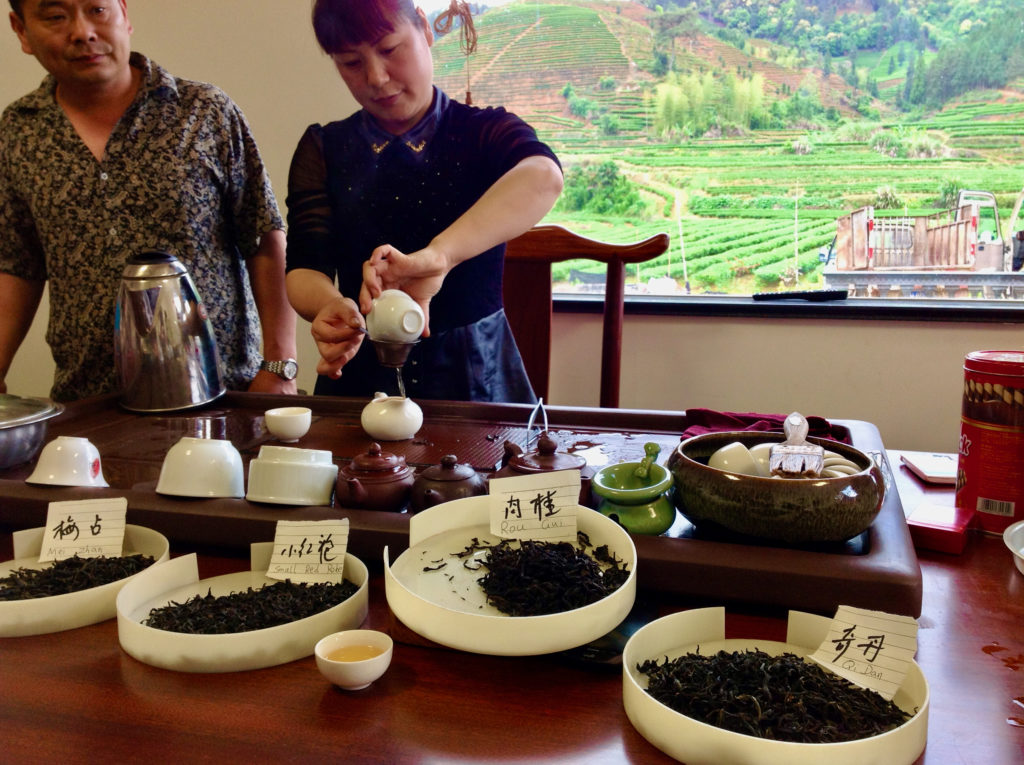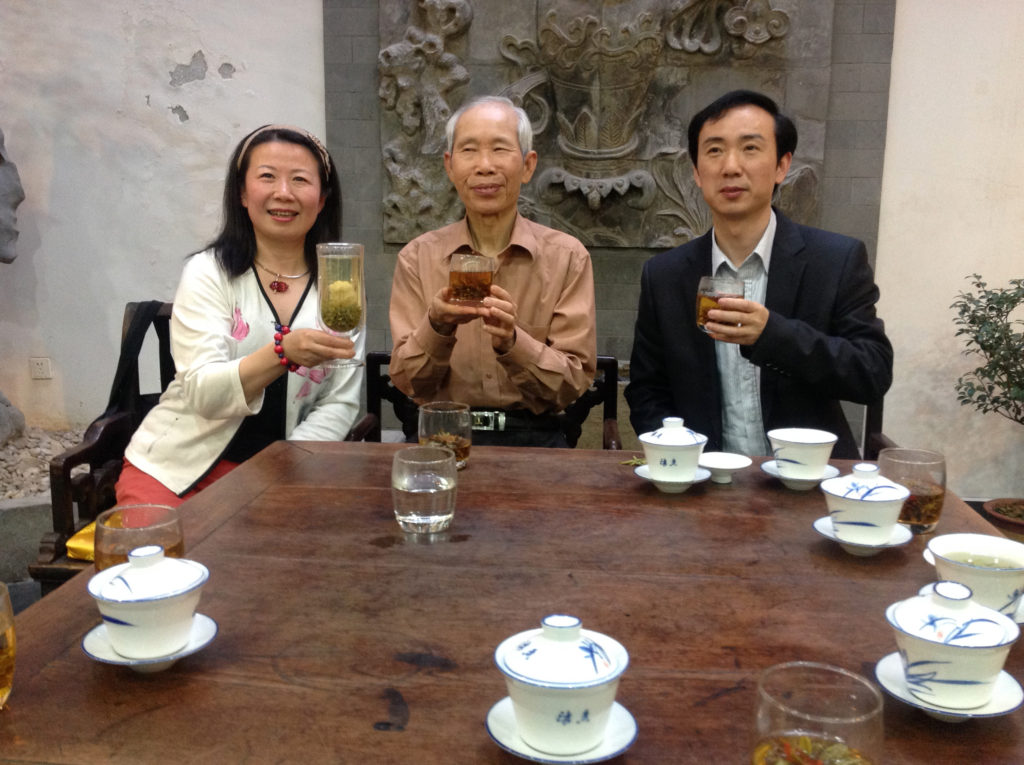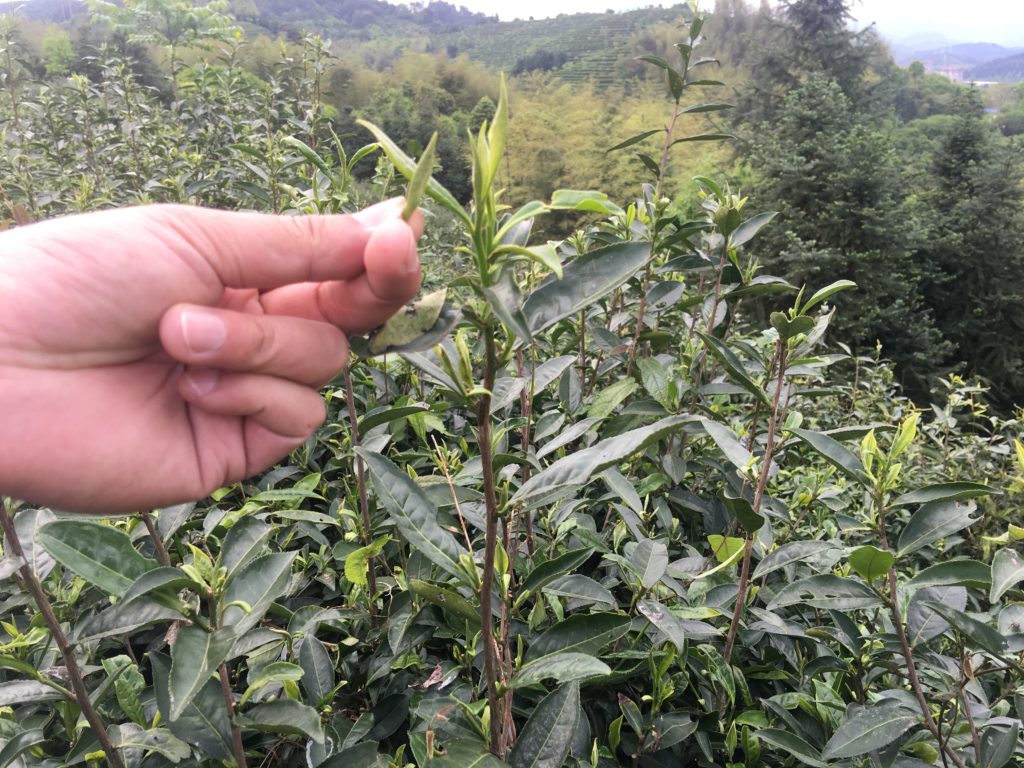Welcome to Seven Cups Tea Brokerage
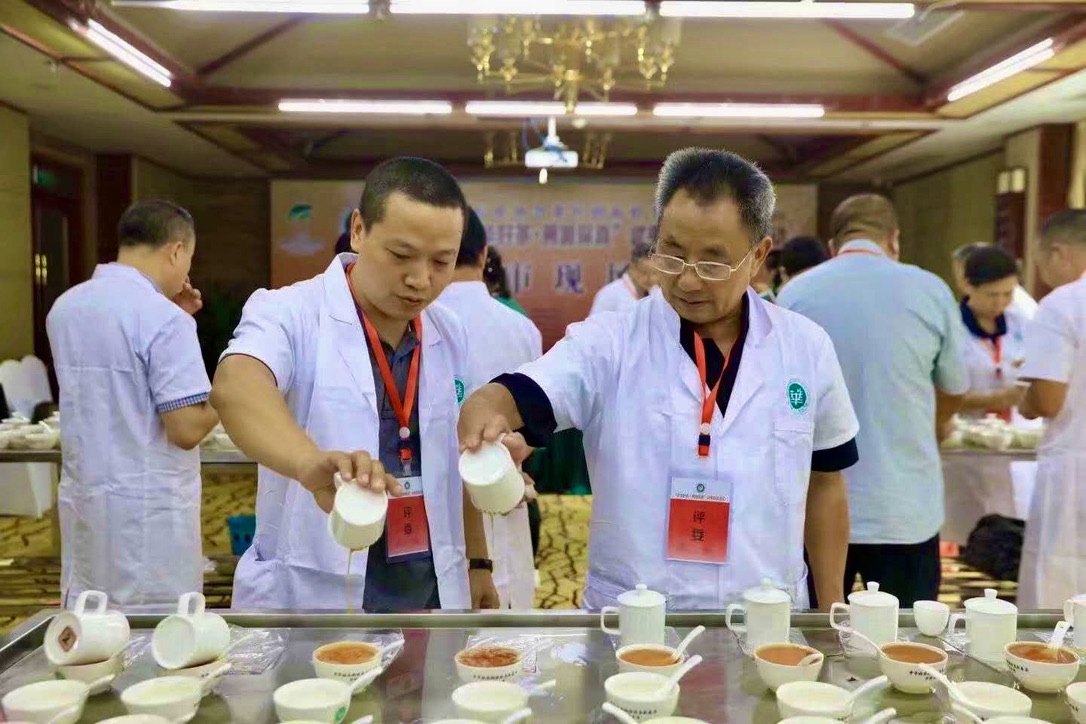
Are you an artisanal tea business?
If you are, you already know how difficult it is to source truly artisanal specialty tea. We’d like to help those companies that want to raise the bar. According to a recent article from Kevin Alexander, “artisanal tea is having its moment.” For us, we see this moment is a validation of the work that Seven Cups has done for 17 years and we would like to help this moment grow.
From our very beginning, Seven Cups has operated as a different kind of tea company and tea wholesaler: one that is focused on quality, transparency, and ethical trade practices. These things can be elusive, especially for small firms working within the complexity of international supply chains. As a small business ourselves, we understand these challenges first-hand. It is our hope that our brokerage service will enable businesses to take advantage of the tea producer relationships and tea sourcing solutions that we’ve worked hard to create.
Pioneering a new tea supply chain
The formal founding of Seven Cups was in 2002 after ten years of study and relationship-building in China. This was just one year after China joined the WTO. Before that, a company like Seven Cups could not exist, mainly because independent producers did not exist. Even if you could find a tea maker that was willing to sell you some tea on the side, you wouldn’t be able to export it. China, before the WTO, only allowed the provincial governments to export anything. All businesses were owned and controlled by the government.
Early importers like David Lee Hoffman of Silk Road Teas could only buy from the provincial government, which held an export license and acted as a tea wholesaler for the whole province. These state-owned provincial companies still exist but have been rebranded, and China’s current export laws still favor these types of companies.
At the beginning of a golden age
Since that time, there has been an explosion of privately owned artisanal tea making companies, and a golden age of tea making as a result. Seven Cups was lucky to be there at the beginning of that revolution. We formed relationships with some of the best tea makers from across China. Duplicating that process now would be close to impossible.
Direct sourcing, more important than marketing certifications
In the first year or two, we focused on organic certified tea. There were a handful of tea makers that had acquired international certificates. As I gained experience, I realized that if I focused on finding quality tea making, I would get to organic, certified or not.
We also realized that the only way we could be sure about anything was to buy from the tea maker directly; even then, we verified the information given to us every other way that we could. We got to know the people that actually did the work, and even evaluated what they were getting fed at lunch.
Relationships mean everything in China
We also got to know a lot of government officials that worked in the tea industry and local mayors. We made friends in the many layers of government. Relationships in China carry as much weight culturally as the law does in the West. That’s how society is organized.
Our first strategic goal was to have the best catalog of Chinese artisanal tea. By 2006 we won an award for our collection. We had also done something that was unheard of in the tea industry: we were 100% transparent from the beginning. We also worked hard at researching our tea, so we could explain to people why our teas were more expensive.
There was and continues to be a lot of misinformation about tea, and even though we may have gotten things wrong sometimes, we have continued. We understand that part of what makes tea valuable is information. Simply tasting “good” is a low bar that says less about the tea and more about the preferences of the drinker. Verifiable authenticity and rarity are critical to value beyond just the skill of the artisanal tea maker.
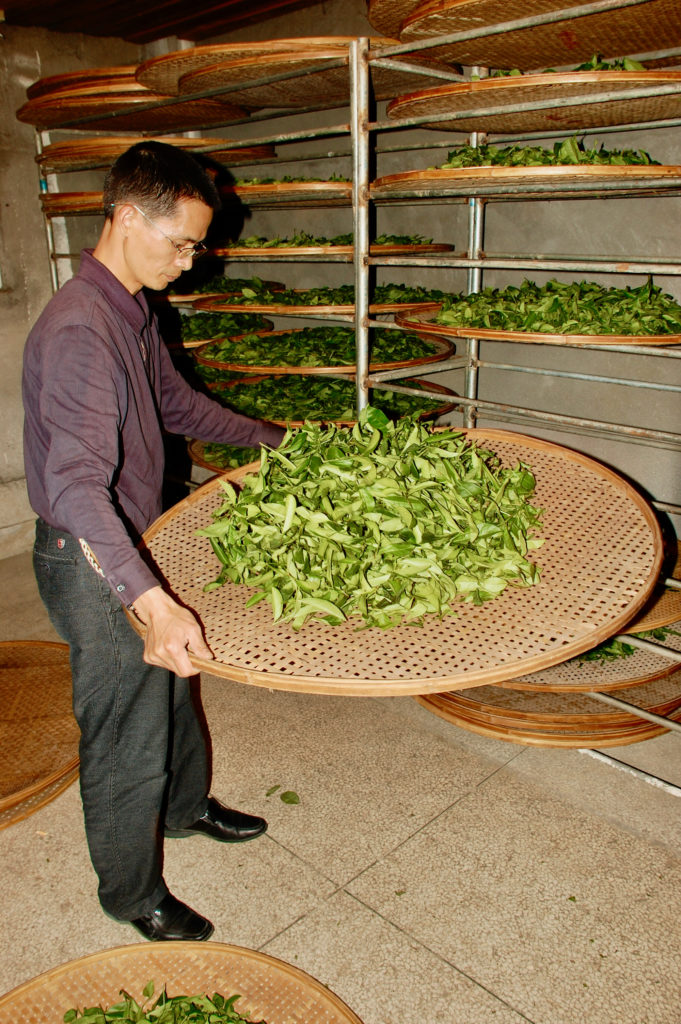 A shift in focus to small-business tea sourcing solutions
A shift in focus to small-business tea sourcing solutions
Back in 2006, we thought about what we actually got by having an award-winning catalog. We realized that it meant very little when it came to our goal of promoting our producers or helping to build the market. We decided at that point to change our strategic goal.
What we wanted to do besides having quality tea for our customers, was to help other small businesses. Sourcing in China was getting harder and more expensive. Finding quality producers was getting harder also. The number of small quality tea makers went from just a few to hundreds of thousands. After 2008, export laws changed and the level of difficulty involved in exporting tea made by these small artisanal tea producers also got harder.
To help small businesses, we set up our brokerage service. It has now operated for over a decade. We currently sell tea in 10 different countries through our service. We hope to ease the barriers that small businesses face supplying quality tea.
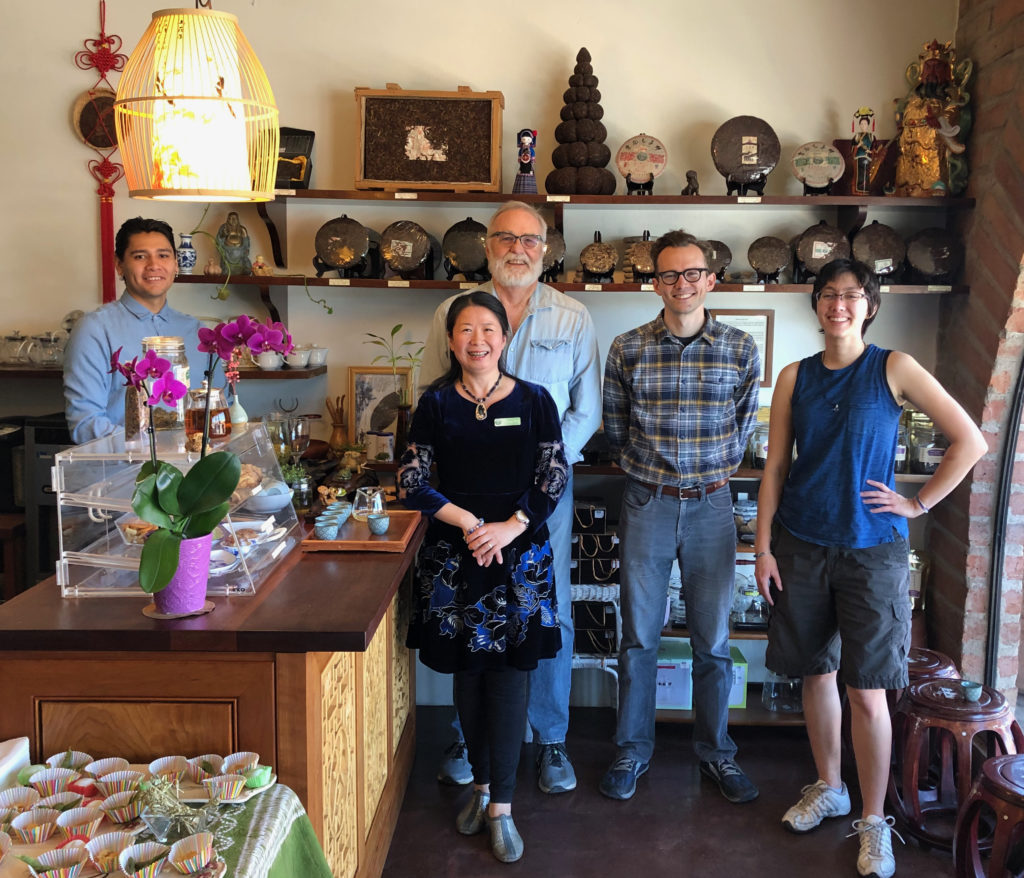
Running a successful tea business is hard
The tea business is very challenging. In America, it is tough for a small tea business to distinguish itself. The current model is focused on blends and flavoring. Price increased considerably even though quality has stayed static. Still, the demand for quality grows, and awareness of better quality tea expands. The consumer trend is apparent, but access to quality, transparency, authentication, and accurate, detailed information remains very limited for businesses.
Broader future tea offerings
Seven Cups has previously restricted its brokerage offerings. We only made available teas that we carried in our catalog, even though the tea makers we buy from made a lot more teas with a broader range of pricing. Going forward, we are going to make those teas available. We also restricted customer access to tea businesses that had brick and mortar facilities. We have decided to lift those restrictions for web-only companies as long as those businesses comply with our transparency principles.
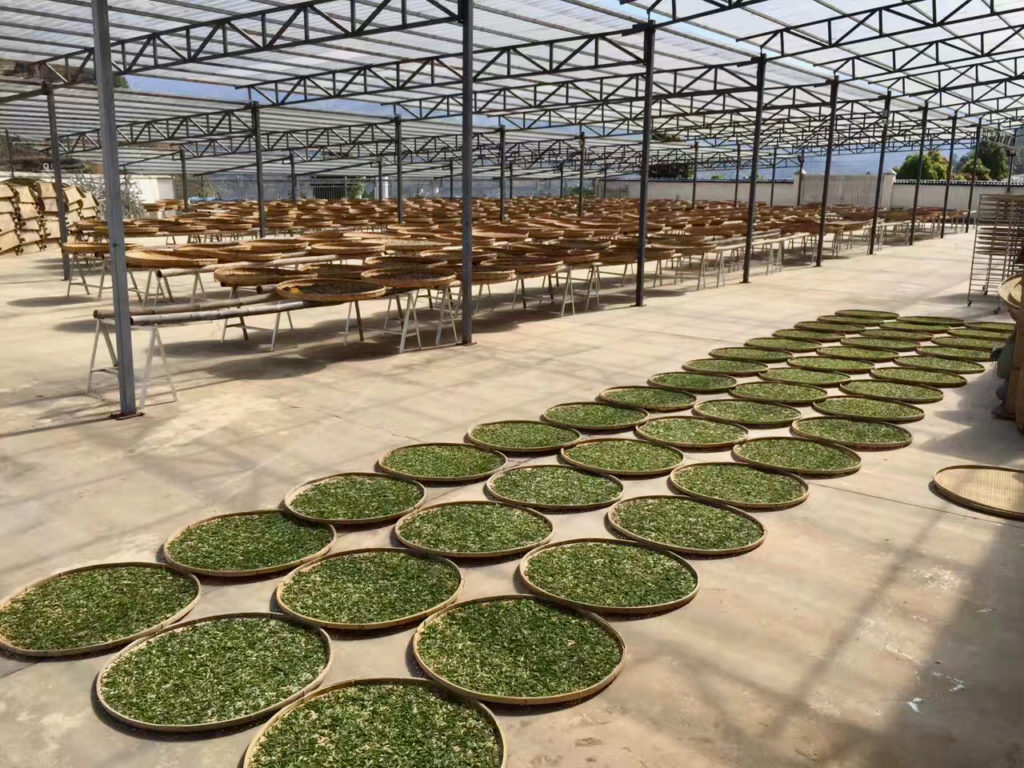
Low minimum order requirements
We will continue to keep order size minimums low. Inventory management is the biggest stumbling block for a quality-oriented business. It is exacerbated by very narrow seasonal buying windows, oppositional purchasing vs. selling seasons, and appropriately educated and trained employees. Seven Cups will offer to consult to address those issues. There are elements of having a successful quality-oriented tea business. We want all of our customers to do well. We want to help them build a robust market for quality tea that is yet to exist outside of China and Japan.
Reporting on changing issues buyers need to know
The are other vital factors that affect pricing and availability. Seven Cups will keep our customers informed. Weather, climate change, tariffs, currency changes, the price of shipping, are factors that will impact planning. We will supply that information to our customers. Running a quality tea business requires having a plan that covers a year, and the outlines of a plan for the following year. We will help you with your planning.
We handle all of the difficulties involved in exporting from China
The logistics are complicated in this hyper-dynamic environment, so we will be rolling out slowly over the next few years. Our focus in on our producers. Each will have their own pages on our site. Seven Cups currently works with 35 to 50 different producers each year and have access to backups of all of those. Operating a brokerage program allows us to send teas to your door anywhere in the world. In addition to China, we also know producers in India, Japan, Korea, Sri Lanka, Nepal, and Africa. We plan to extend our brokerage offering to include them in the years to come.
Filling the hole in the specialty tea supply chain
We are trying to fill a supply hole that exists for people. Our thought from the beginning that we wanted to offer teas at a price that would equal or be less than a Chinese tea wholesaler. We think that we have been able to do that so far. Our service is so much more than just putting together a buyer and a seller. We vet both sides of the transaction, help to maintain quality control, provide for testing for contaminants for the cheapest rate available. We are also compliant with all new FDA food safety requirements and ensure that all of our producers are in compliance as well.
Stable and predictable prices
Because of long-standing relationships in China, rising prices are gradual and predictable. We were awarded numerous honors for knowledge of tea, its culture, and understanding of the industry inside and outside of China, especially when it comes to the quality market. We take a small and reasonable margin for the teas we broker, and in 2019 were able to lower our prices because of increases in our volume and our projected capacity.
A proven ethics-driven business model
Seven Cups was founded to make business decisions based on ethical principles. It was our goal to have a business model that reflected those values. I can say that it is much harder to do business that way and sometimes money comes at a slower pace. Still, we have proved our model in very tough markets where failure is commonplace.
We started as a local business selling a high-end artisanal tea product, a hot beverage, in a desert where the temperature is over 100 degrees for six months out of the year and in a struggling local economy. We now have customers around the world, both retail and wholesale.
We have done that without spending money on marketing other than our website and in-house efforts. If you have had our tea, chances are someone told you about us. We have let our tea speak for us. It speaks to the compelling nature of quality tea, unblended or flavored. I see great untapped potential in a market for specialty tea, not just here, but around the world. Almost all tea drinkers, when exposed to quality tea, want to continue to drink it. The market for cheap tea is in decline. We know how to buy quality tea and how to sell it. We hope we can be of service to you.
